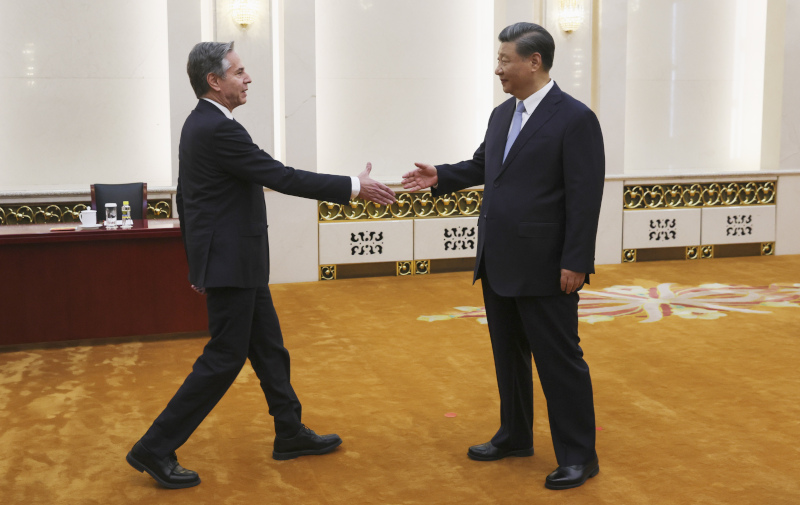Blinken's six words of stability
June 22, 2023
“We do not support Taiwan independence.” These were perhaps the most important six words spoken by US Secretary of State Antony Blinken during his China visit. They signalled the end of several years of deliberate ambiguity, vacillation and provocation in relation to US policy.
Blinken took considered care to clearly restate US adherence to the policy. He said On Taiwan I reiterated the long standing US one China policy. That policy has not changed.
Like President Xi, Blinken opposed any unilateral changes to the status quo and welcomed a peaceful resolution.
In six clear words, Blinken pulled the rug out from under recent US military policy that was increasingly built around the false ideas that Taiwan would be attacked by China and that this would trigger an inevitable China US conflict.
This is a narrative widely promoted in Western media despite President Xis frequent statements of his desire for peaceful reunification. The narrative started life as a unlikely potential scenario, but supported by Western media, it was rapidly given the ring of certainty. The media quoted US military staff who put a date by which war with China would have broken out.
China-hawk politicians added to the narrative. In Australia, the Murdoch dominated media ran front page stories on the inevitability of armed conflict. These stories, quoting US funded think tanks like the Australian Security Policy Institute and others in the employ of the United States, made the prospect of conflict seem unavoidable.
In part, the Strategic Defence Review prepared by Australia was based on the prospect of this inevitable conflict. The purchase of nuclear submarines, and the foundation of AUKUS was to a significant degree underpinned by the idea of an inevitable conflict initiated by events around Taiwan.
In just six words Secretary of State Antony Blinken has removed those foundations of policy leaving Australia stranded with an eye-wateringly expensive contribution to the US economy and arms industry.
Blinkens six words are a welcome clarification of US policy, but they are neither definitive nor bonding. If definitive then we would expect to see President Biden endorsing these clear commitments. To date, this has not happened. Although we can assume that Blinken spoke with the authorisation of the President, we cannot assume that President Biden will stick to this clear policy affirmation during the upcoming election campaign.
Blinkens affirmation is not binding on any new incoming US President. The 2024 elections may see the return of Donald Trump, or some other right-wing anti-China hawk. They may seek a return to ambiguity or outright abandonment of the policy.
However, there is at least a 12-month window of opportunity for de-escalation. Whilst no major progress was made on a range of contentious issues it was the reopening of discussion after five years that was in itself the most important outcome. The meetings were an opportunity to clarify positions away from media hype and domestic political point scoring. The meetings laid the foundations for further discussions around specific issues.
Its against this background that Blinken introduced this subtle but important shift in what had become an ambivalent US policy toward Taiwan, vis-a-vis China. This reaffirmation of the previous United Nations endorsed policy position will enrage those who want war with China, but it signals intelligent and thoughtful heads are finally prevailing.
Those who seek to undermine any restoration of normal relations between the US and China cannot be underestimated. Blinkens previously planned visit to China was sabotaged with the discovery of a way-ward weather balloon. The balloon had been on the radar for nearly two weeks before its discovery was leaked to national media.
This visit by Blinken was subject to another sabotage attempt with the fortuitous discovery leaked to the media about Chinese facilities in Cuba. This had been known since 2019 so the sensationalist revelation in June 2023 was clearly designed to sabotage Blinkens visit.
The Western media believes the meeting between Secretary of State Blinken and President Xi Jinping is a critical sign of Beijings willingness to engage with Washington and stave off a dangerous deterioration in relations between the two superpowers. This is a face-saving conclusion that simply ignores the explicit return to the United Nations position in the US policy approach.
Former Foreign Minister, Wang Yi remarked that It is necessary to make a choice between dialogue or confrontation, cooperation or conflict.
Blinkens six words show that a positive choice has been made.
